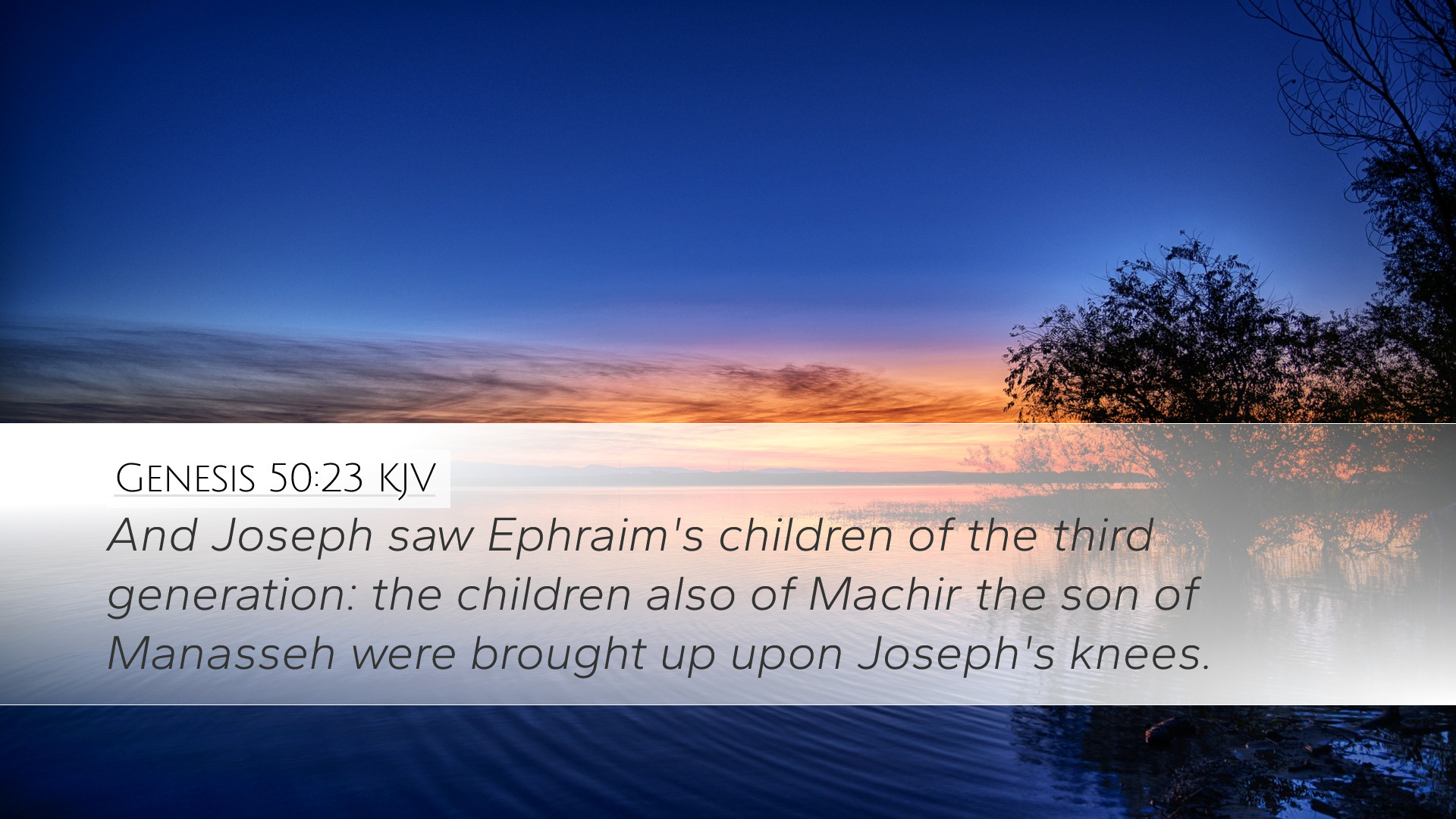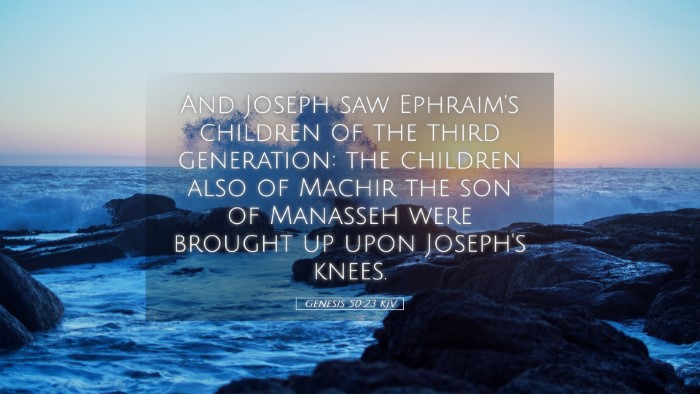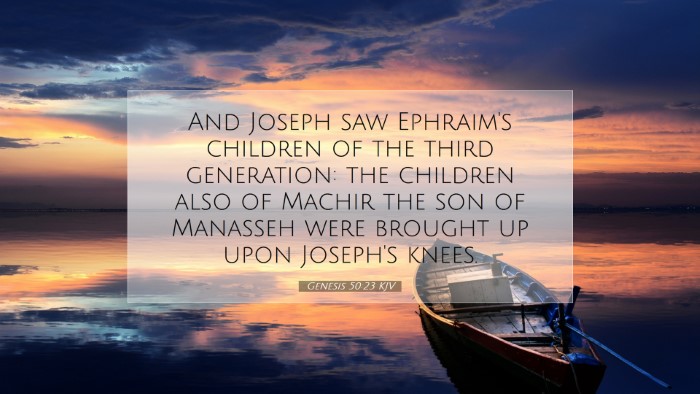Bible Commentary on Genesis 50:23
Verse Text: "And Joseph saw Ephraim's children of the third generation: the children also of Machir the son of Manasseh were brought up upon Joseph's knees." (Genesis 50:23)
Contextual Overview
The conclusion of the Book of Genesis provides a profound insight into the closing years of Joseph's life, a life marked by trials, triumphs, and divine providence. This verse captures a poignant moment where Joseph beholds the third generation of his lineage, specifically detailing the descendants of Ephraim and Manasseh.
Commentary Insights
Matthew Henry's Commentary
Matthew Henry highlights the importance of family in this passage, underscoring Joseph's joy in seeing the fruit of his lineage. He notes that witnessing multiple generations signifies God's faithfulness and the fulfillment of His promises. This display of Joseph’s descendants stands as a testament to God's covenant with Abraham, Isaac, and Jacob, demonstrating that God's plan encompasses not just immediate lineage but extends to future generations.
Henry also points out that Joseph's embrace of these children symbolizes a reunion with his family's past and a legacy that will continue through Ephraim and Manasseh. He emphasizes the emotional weight of this moment, with Joseph serving as a patriarch who has faithfully navigated through trials and is now witnessing the blessings that result from his faithfulness.
Albert Barnes' Notes
Albert Barnes comments on the significance of the third generation, noting that it reflects God's promise that He would bless Abraham's descendant as numerous as the stars. Barnes adds that Joseph's ability to see his grandchildren signifies a blessing typically reserved for the faithful and righteous. The mention of Machir, the son of Manasseh, emphasizes God's favor on Joseph's family line and the fulfillment of divine promises through the ages.
Barnes also delves into the cultural significance of the blessings passed down through generations. Within the Hebrew context, the prominence of Joseph in his family's life is a reflection of how God can elevate individuals to fulfill His plans, regardless of their past hardships. This moment of generational blessing embodies the rewards of Joseph's patience and faith in God throughout his adversities.
Adam Clarke's Commentary
Adam Clarke brings a detailed analysis of the names and implications surrounding the descendants mentioned in this verse. He details that Ephraim and Manasseh signify growth and strength, respectively, and their mention reveals a divine strategy in honoring Joseph’s legacy. Clarke notes that the care given to Joseph's sons by their grandfather might have been a cultural norm, meant to ensure patriarchal knowledge was passed effectively through generations.
Furthermore, Clarke stresses the importance of seeing one's grandchildren as a significant mark of God's blessings. It is a concept that carries profound spiritual implications, reflecting a continuity of faith and divine favor. In Joseph's context, witnessing his grandchildren is not merely a familial pleasure but a sacred acknowledgment of God’s covenant and the vitality of his faith passed through familial lines.
Interpretative Themes
Throughout the commentaries, several key themes resonate strongly:
- Generational Blessings: The acknowledgment of multiple family generations represents God’s enduring faithfulness across time.
- Legacy and Heritage: Joseph's role reflects the importance of transferring faith, wisdom, and blessings to future generations.
- Divine Providence: The narrative highlights that God's plans are sovereign and extend far beyond individual trials faced by believers.
Theological Implications
This passage enriches our understanding of God’s character in relation to His people. The insights from the commentaries allow pastors and theologians to develop a more profound understanding of generational faith and the significance of familial relationships in the biblical narrative.
Joseph’s life exemplifies how God uses individuals for larger purposes, reflecting his covenant faithfulness and the importance of being a part of God's redemptive history. The generational tie symbolizes hope; as believers witness God’s work in their lives and those around them, they stand assured of His ongoing commitment to their families.
Conclusion
The verse Genesis 50:23 not only illustrates a moment of familial joy for Joseph but also serves as a profound reminder of God's covenantal promises throughout generations. The accumulated wisdom from these public domain commentaries emphasizes that our lives have significant ramifications beyond our immediate experiences, creating a call to faithfulness and the importance of nurturing faith within the family structure.
As we reflect on this passage, may we be encouraged to live lives that honor God and set a foundation for our descendants to experience the fullness of His grace and blessings.


